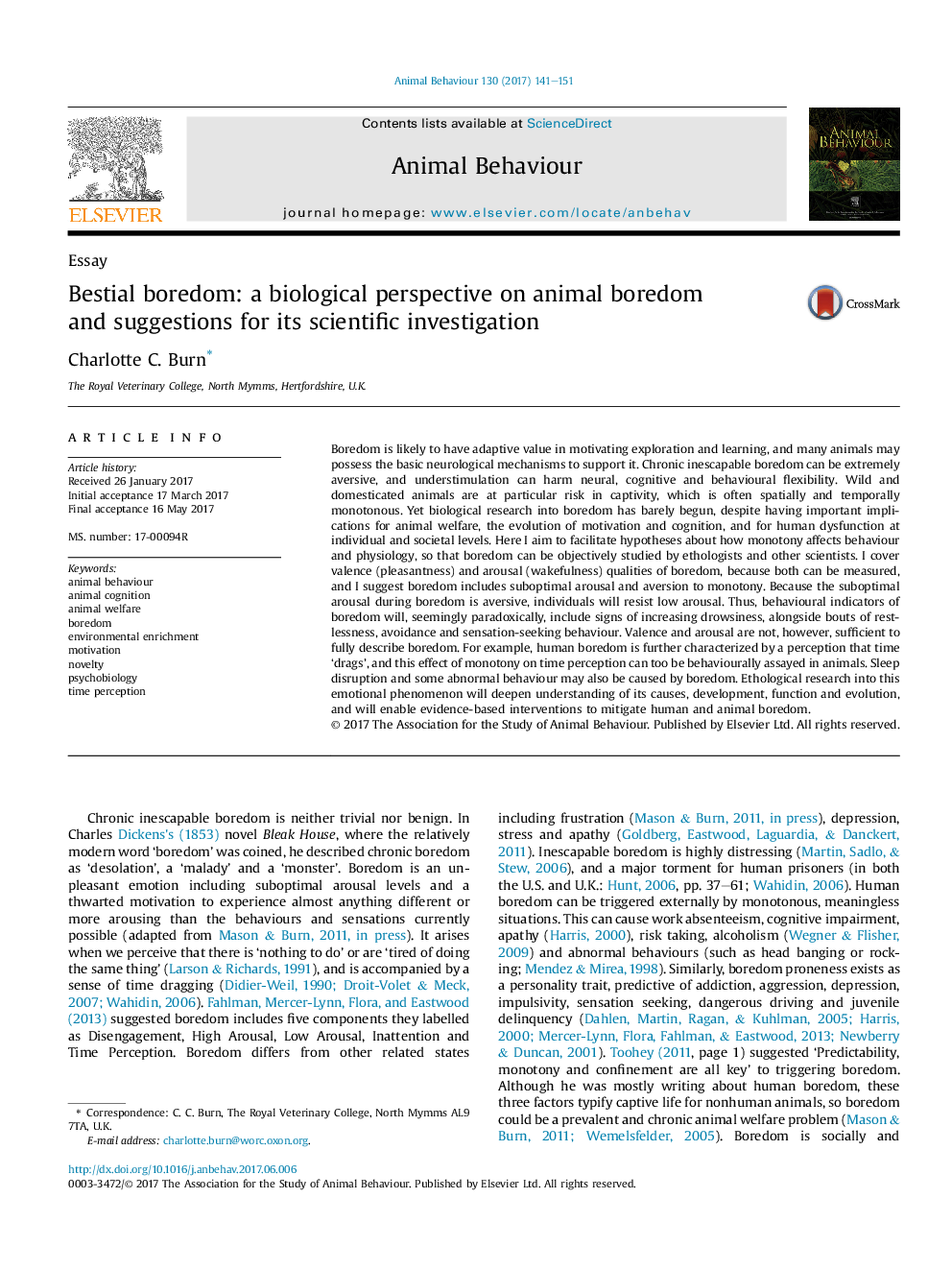ترجمه فارسی عنوان مقاله
خستگی مفرط: یک دیدگاه بیولوژیکی در مورد خستگی حیوانات و پیشنهادات برای تحقیقات علمی آن
عنوان انگلیسی
Bestial boredom: a biological perspective on animal boredom and suggestions for its scientific investigation
| کد مقاله | سال انتشار | تعداد صفحات مقاله انگلیسی |
|---|---|---|
| 137246 | 2017 | 11 صفحه PDF |
منبع

Publisher : Elsevier - Science Direct (الزویر - ساینس دایرکت)
Journal : Animal Behaviour, Volume 130, August 2017, Pages 141-151
ترجمه کلمات کلیدی
رفتار حیوانات، شناخت حیوانات، رفاه حیوانات، خستگی، غنی سازی محیطی، انگیزه، اخبار روانشناسی، ادراک زمان،
کلمات کلیدی انگلیسی
animal behaviour; animal cognition; animal welfare; boredom; environmental enrichment; motivation; novelty; psychobiology; time perception;

